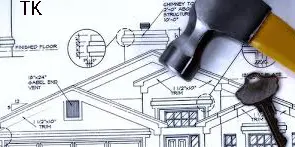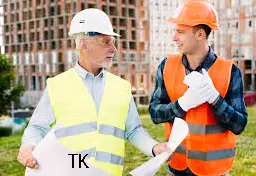Principal certifying authority commonly refers to the context of building and construction. In countries like Australia, where construction and building regulations are strictly followed, it ensures that all the laws and regulations for building work are followed or not. This authority is responsible for ensuring the construction certificate.

Introduction to principal certifying authority
PCA (principal certifying authority) is a person or an organization that is responsible for issuing a certificate that construction and building work complies with relevant laws, regulations, and standards. During the construction process, it ensures the safety, quality, and compliance standards.
How to appoint a PCA?

A PCA is appointed before the building work starts by a builder or a constructor and remains involved in the construction process until the completion certificate is issued. To ensure the completion of construction, it is strictly advised to choose the same person for the construction certificate and your PCA. So that your construction will be completed on time.
Responsibilities of a Principal Certifying Authority
A PCA is responsible for the following duties, which are given below.
Issuing construction certificate
Before starting the construction, PCA ensures that work complies with relevant laws and approved plans. After ensuring it, he issues the construction certificate to proceed with the work.
Inspections while building
At different points of the construction, PCA is in charge of conducting inspections and making sure that safety standards, designs, and the construction rules are followed. This involves making certain that every facet of the project complies with the applicable codes (e.g., structural, plumbing, electrical, etc.).
Observation and Compliance
During the construction process, PCA checks all the work at crucial points to make sure that it follows the authorized plans. If construction work is not done according to authorized plans and the rules are violated, then PCA has the authority to issue a notice requiring corrective actions.
Communication with other authorities
Additionally, PCA also collaborates with other environmental agencies, fire authorities, and local councils. They might check and ensure that all the environmental and safety requirements are fulfilled.
Accountability for Non-Compliance
If the problems occur, then PCA can issue rectification orders, and in some cases, they may notify local authorities of serious non-compliance to stop unsafe construction practices or non-compliance with regulations.
Self-reliance and qualifications
PCA needs to be separate and independent from both the developer and the builder to guarantee the impartiality of their certification. In addition to qualification, they must be professional with construction and compliance experience, usually a licensed builder or an engineer.
How to change a PCA?
A Principal Certifying Authority (PCA) can be changed during the construction through the following steps, which are given below.
- If your PCA is not fulfilling its duty properly, you can do it, but you must have an appropriate reason.
- Inform your current PCA so that he will give you the documents of the certified work.
- Select a new professional PCA who will ensure compliance by reviewing the existing plans, approvals, and remaining work.
- Inform the relevant authorities about changing the PCA, and the new PCA will need to reissue some documents.
- The new PCA will check whether the previous certifications or inspections are valid or not.
- Update all the documents and do not delay in the construction process because it can cause some difficulties.
It is better to contact a lawyer or local regulatory authority to ensure that the process is handled properly. Also inform the other parties in the project about the change for smooth coordination.
Conclusion
The principal certification authority is the key figure for ensuring compliance with relevant laws, safety, quality, and codes during the construction process. They conduct inspections, issue the construction or completion certificate, and ensure that the building is safe for occupants.

FAQs
- What is the role of a Principal Certification Authority (PCA)?
Answer: PCA (principal certifying authority) is a person or an organization that is responsible for issuing a certificate that construction and building work complies with relevant laws, regulations, and standards. During the construction process, it ensures the safety, quality, and compliance standards.
2. How to become a Principal Certification Authority?
Answer: A PCA needs to be a certified and accredited professional with experience in building compliance, such as a licensed engineer, architect, or builder. To guarantee objectivity in their certifications and inspections, they must be separate from the developer or builder.
3. Can the builder or contractor be the PCA?
Answer: PCA needs to be separate and independent from both the developer and the builder to guarantee the impartiality of their certification.
4. What is the price of a PCA?
Answer: The complexity of the project, the PCA’s credentials, and the area can all affect the cost of hiring one. The fees can be included in the total cost of construction and are typically agreed upon up front before work starts. Asking for a quote and being aware of the services’ inclusions are crucial.
